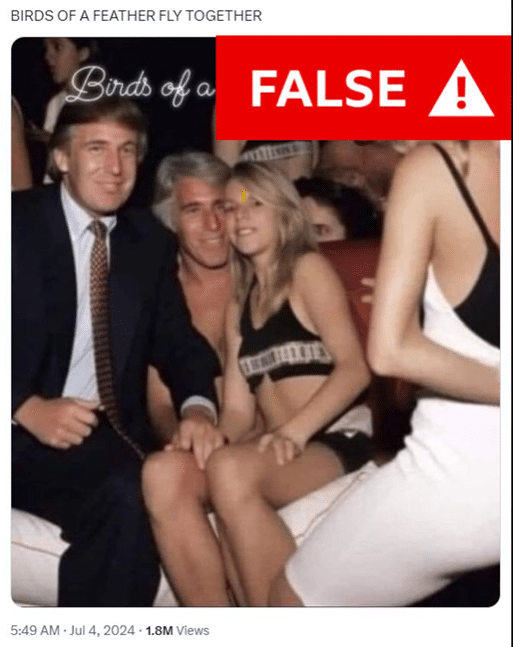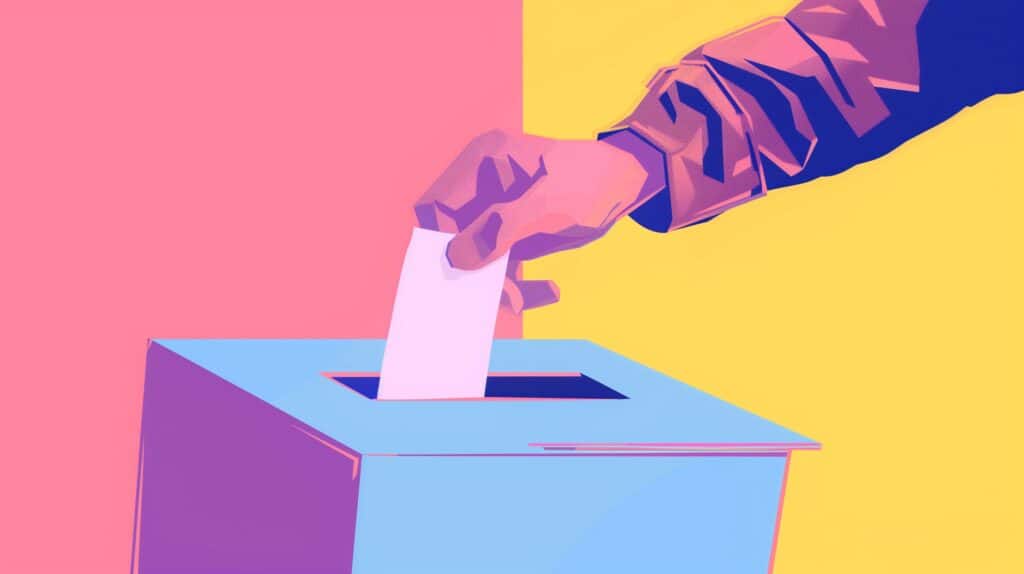Developing artificial intelligence has sparked hope that many processes in the future can be accomplished at a much greater efficiency than previously possible. It also marks a certain technological progress. One of the areas where AI is being increasingly utilized is in election campaigns, where the technology is employed for both beneficial and less ethical purposes. Therefore, with these new possibilities comes the risk that this technology will be misused.
Election Campaigns That Gained Attention Through AI
It cannot be dismissed that there are disadvantages of AI in politics. Artificial intelligence is not always used for noble purposes. Increasingly, it is becoming a tool for spreading misinformation to mislead voters and steer them in a desired direction.
For instance, during the voting in India, the two largest parties— the ruling Bharatiya Janata Party and the opposition Congress Party— accused each other of using AI-generated misleading video and audio content in their campaigns. This content was intended to misinform the public about politicians’ actions and positions.
In the 2017 French elections, it was observed that groups operating out of Russia used bots to post false statements attributed to candidate Emmanuel Macron on social media. These same claims have also been repeatedly levelled to other Western governments whom potentially are not doing enough to stop the intervention of third-party interference from countries with allegiances elsewhere.
Earlier this year, another scandal drew attention when New Hampshire Democrats received phone calls supposedly from Joe Biden, urging them not to vote that day and to withhold support for Donald Trump. This incident was investigated as there was suspicion that the calls were fake, and that Joe Biden’s voice had been cloned.
Additionally, a photo shared on Twitter depicted Donald Trump with the infamous Jeffrey Epstein and a young girl. However, it was later identified as a fake, AI-generated image.

Image credit: Shayan Sardarizadeh
One of the most recent incidents involved a post on Donald Trump’s social media platform, Truth Social, where a photo showed the famous singer Taylor Swift allegedly endorsing Trump in the upcoming United States elections. This post garnered attention as it was likely created using AI and shared information that Taylor Swift herself had not confirmed.
The Use of AI to Monitor Election Campaigns
Despite the challenges and risks associated with AI in political campaigns, it is also evident that it can become a valuable tool to streamline campaign processes.
For example, in the same voting in India, candidates used avatars to ensure greater voter engagement. With over 968 million voters, this approach allowed campaigns to reach isolated voters, establish connections with them, and build political appeal.
Additionally, this technology was used to reach voters who speak different languages; for instance, Modi’s speech was translated in real-time from Hindi to Tamil.
AI can also be utilized to monitor and assess voter attention and reactions to campaigns, allowing for adjustments to be made, and to predict election statistics and future results.
Is the world of politics better off with the prevalence of AI?
AI in politics presents growing challenges in the voting context. The deliberate creation of false information and defamation, for which AI is particularly well-suited, is becoming more and more common. However, AI can also be used in analytical processes and to create personalized content.
Nevertheless, there is a very fine line between the two, and it is becoming increasingly difficult to distinguish truth from falsehood. In one way or another, this influences voters’ choices, opinions, and can determine election outcomes, which may not always be accurate.
In the future, this will require careful legal regulation and other measures to prevent or identify content created through the unlawful use of AI. Sources: Brennan Center, NBC News, X, Asia Pacific, The Guardian, Truth Social.

